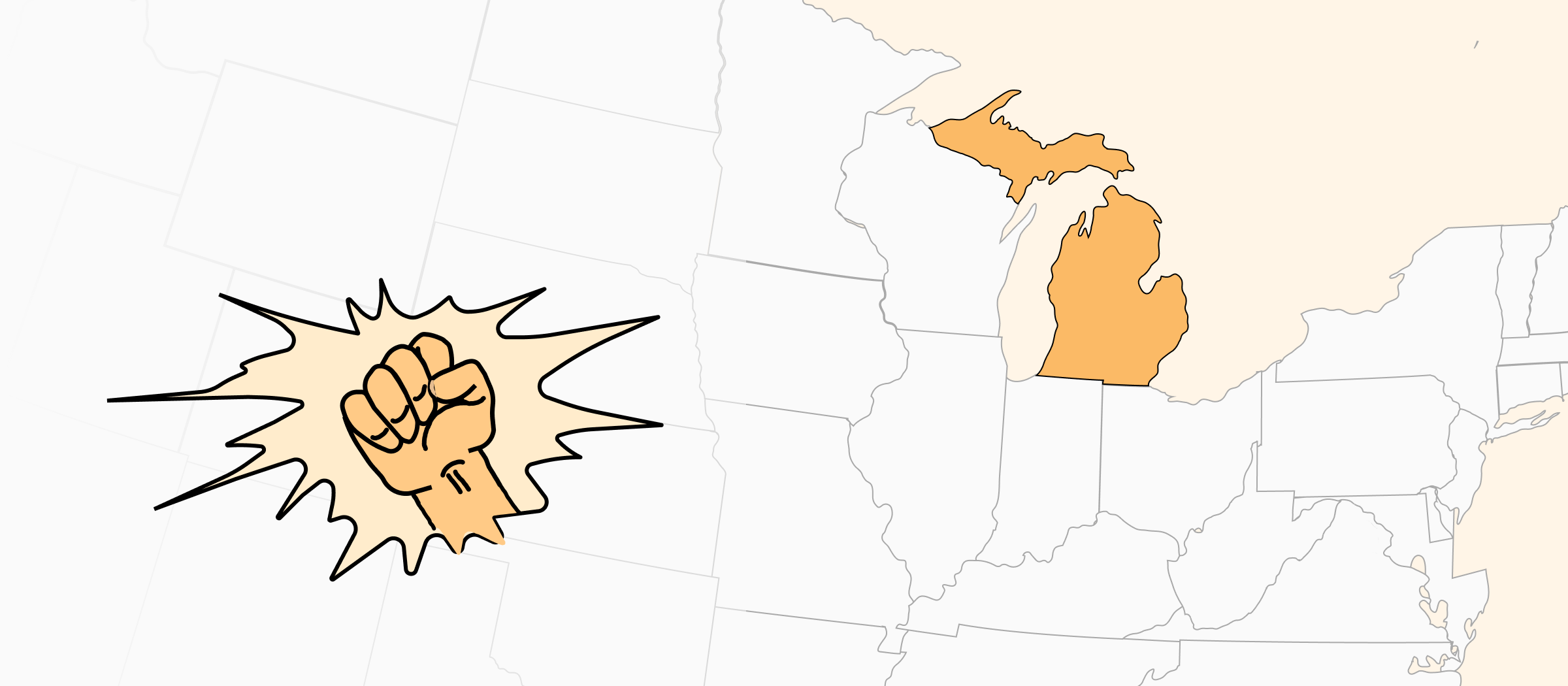| Tenant Protected Actions |
|
| Landlord Retaliatory Actions |
|
| Penalties for Retaliation |
|
When Is It Illegal for Landlords to Retaliate in Michigan?
It’s illegal for Michigan landlords to retaliate with eviction or increased obligations under the rental agreement, against tenants who have taken one of the following protected actions within the last 90 days:
- Reporting health and safety violations.
- Attempting to secure rights under law or lease.
- Participating in a tenant organization.
- Withholding rent for a lawful reason.
The law allows an exception when the landlord can prove a non-retaliatory, good-faith reason for the alleged retaliatory action. For example, a landlord who raises rent proportionately in response to a large increase in property tax is not retaliating, even if a tenant has recently complained about maintenance.
What Can Tenants Do in Response in Michigan?
In Michigan, a claim of retaliation is the tenant’s defense to a landlord who is attempting eviction. If the court finds the landlord is retaliating, the landlord will lose the eviction suit. Judges also have the power to order other relief for the tenant, like rent reductions or injunctions.
Sources
- 1 Mich. Comp. L. 600.5720 (2022)
-
Michigan’s retaliation statute is sprawlingly organized, which makes it difficult to provide direct citation to each provision in context. The statute is short, however, and accessible at Mich. Comp. L. 600.5720 (2022).
Source Link - 2 Phoenix Hummel, Residential Landlord-Tenant Law Benchbook at 2-24 (2022 ed.)
-
“The HLM [Housing Law of Michigan] expressly authorizes remedies that include injunctive relief, repair and deduct orders for tenants, costs of repairs charged to an at- fault tenant, demolition, and receiverships.”
Source Link

